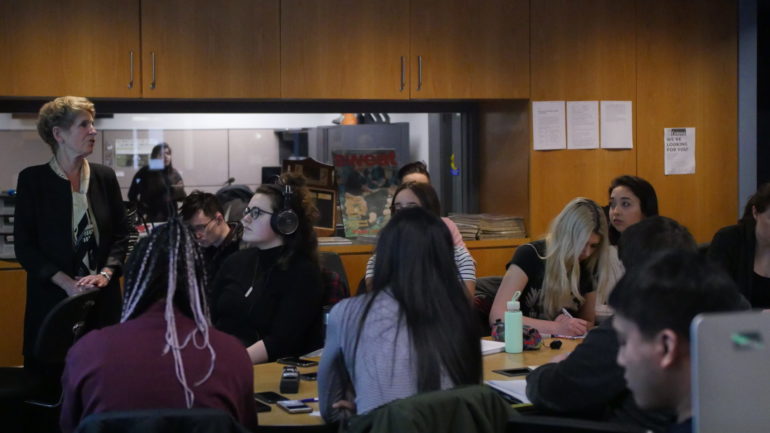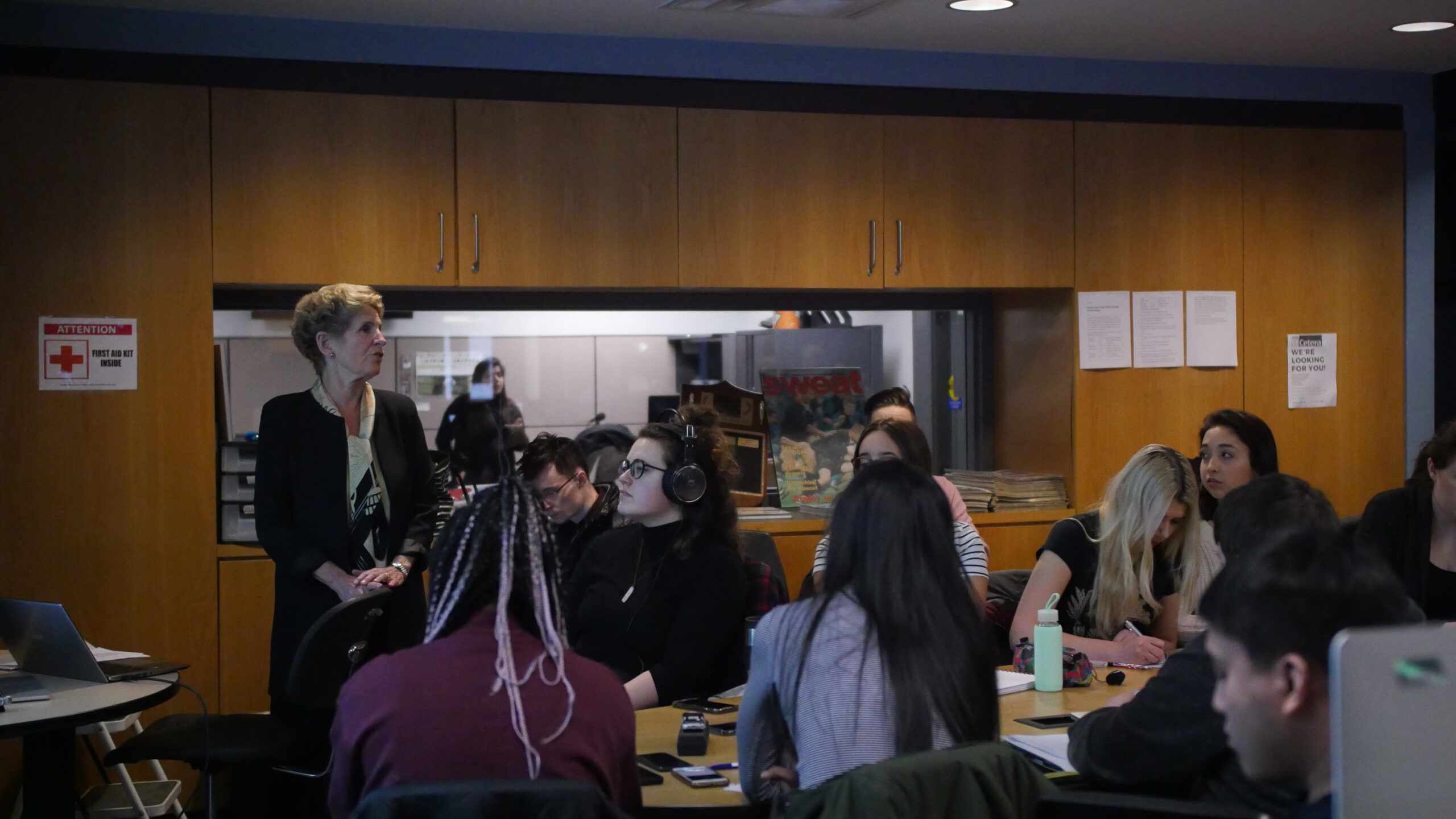
Galvin Zaldivar
Young journalists had Humber had a chance to sit down and talk with “history on two legs.”
Kathleen Wynne, the Member of Provincial Parliament for Don Valley West, and the former Premier of Ontario said she wanted to demystify political life.
“One of the things about being in an office that is perceived as high office, is that there are lots of misconceptions about what that’s like and that somehow the position defines the person,” she said to a newsroom packed with journalism students.
“I’m trying to answer the questions with young people to the greatest degree possible because I think it’s important that I use the experience that I’ve had to answer your questions.”
Wynne looked back on her more than 20 years in politics, from her days advocating for education during the government of Mike Harris.
“We had a government that seemed not to value publicly funded education that seemed to be okay with people getting fed up with public education … leaving the system for private education or just being dissatisfied with the system that had really worked pretty well,” she said.
That experience in social activism movements would serve her well as premier, Wynne said.
“I think the most important thing that I learned was, to trust my instincts to trust my gut with the caveat that I needed to be informed by people who are smarter than me,” she said.
In a Q and A with students following her talk, Wynne spoke about the work done by politicians that aren’t often in the limelight.
Jim Coyle, a Humber Journalism instructor, who covered Queen’s Park when he worked for the Toronto Star, said there is a lot of work that politicians do away from the cameras.
“MPs often will say that almost all of their important work is done out of sight. Committee work constituency work, the media is often obsessed on the stuff that’s in many ways, the most superficial, you know, the cheesy theatrics of question period,” he said.
Wynne said, larger news outlets are less able to cover the smaller more personal work with constituents for bolder personalities and conflicts.
“What [MPPs] do most of the time is you spend time talking to people about what’s going on in their lives, you go to where they are,” she said.
“The reporters who would ask me those questions, those human interest things are the smaller issues, were often reporters from small community newspapers,” Wynne said. “And so I could sometimes tell those positive stories in those in those media markets.”
Coyle said political coverage of Queen’s Park has shifted away from issues and onto the theatrics of question period and of leaders.
“When I started out a gallery was probably four times as large as it is now. It had reporters there from Windsor, Hamilton, London, they all had bureaus there,” he said. “If something came up to do with Leamington and the tomato plant, Heinz plant there, there would be someone with an interest in that issue in the jobs there.”
From his years covering Queen’s Park, Coyle said he always tried to shed some light on the lives of backbenchers, but not all journalists have that luxury.
“To do that it requires an investment of time,” he said. “And newsrooms have fewer and fewer bodies, feeding more and more platforms, higher and higher space. They’re fighting for survival economic survival now and they’re desperate for clicks.”

